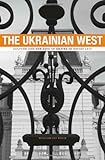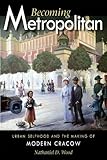Support H-Net | Buy Books Here | Help Support the NBN and NBN en Español on Patreon | Visit New Books Network en Español!
- African Studies
- African American Studies
- American Politics
- American Studies
- American South
- American West
- Asian American Studies
- Australian and New Zealand Studies
- British Studies
- Canadian Studies
- Caribbean Studies
- Central Asian Studies
- Chinese Studies
- East Asian Studies
- Eastern European Studies
- European Politics
- French Studies
- German Studies
- Iberian Studies
- India Studies
- Indian Ocean World
- Iranian Studies
- Irish Studies
- Israel Studies
- Italian Studies
- Japanese Studies
- Korean Studies
- Latino Studies
- Latin American Studies
- Mexican Studies
- Middle Eastern Studies
- Native American Studies
- Pacific Studies
- Polish Studies
- Russian and Eurasian Studies
- Southeast Asian Studies
- South Asian Studies
- Turkish Studies
- Ukrainian Studies
- Western European Studies
- World Affairs
- Animal Studies
- Anthropology
- Archaeology
- Business, Management, and Marketing
- Media
- Critical Theory
- Disability Studies
- Drugs, Addiction and Recovery
- Education
- Economics
- Finance
- Geography
- Gender Studies
- Genocide Studies
- Higher Education
- Human Rights
- Journalism
- Language
- Law
- LGBTQ+ Studies
- National Security
- Philosophy
- Policing, Incarceration, and Reform
- Political Science
- Politics & Polemics
- Public Policy
- Sex, Sexuality, and Sex Work
- Sociology
- Sound Studies
- Sports
- Urban Studies

Feb 15, 2013
Moscow Believes in Tears
Russians and their Movies
Summary
Did you see one of Eisenstein's masterpieces "The Battleship Potemkin" and "Alexander Nevsky" in a Russian or Soviet history class? Were you captivated by Tarkovsky's brooding long shots in movies such as "Solaris" and "Stalker"? Did you seek out Pichul's "Little Vera" in the theater to get a glimpse of the new openness ushered in by Glasnost? If you did, or even more if you did not, Louis Menashe's Moscow Believes in Tears: Russians and Their Movies (New Academia, 2011) offers a valuable entre into Soviet and Russian film, especially during the Gorbachev years. (Full disclosure: Menashe and I used to share an office. He taught me a lot, so I'm somewhat biased.)
Menashe has long used Soviet film as a medium for discussing Russian and Soviet society in the classroom, thus the essays in this book will be of use to teachers. But beyond being a handy pedagogical resource, the book is a valuable history of Soviet cinema in the "Era of Stagnation," Glasnost, and the Post-Soviet period. He argues that many very high quality films were made in the "Era of Stagnation," though some were not shown. During Glasnost, these "lost" films made it into the theater to wide acclaim. Things were looking up. Yet, Monashe says, just as Gorbachev failed to create the foundation for an enduring open society, his Post-Soviet successors have failed to nurture a new generation of filmmakers to rival the creativity of the great Soviet directors.

























































































